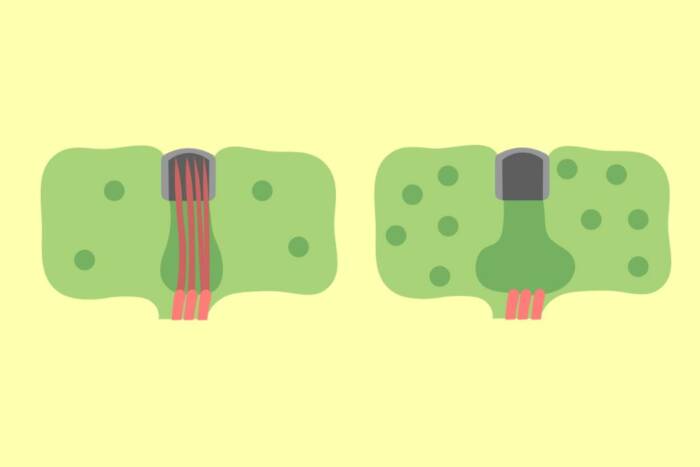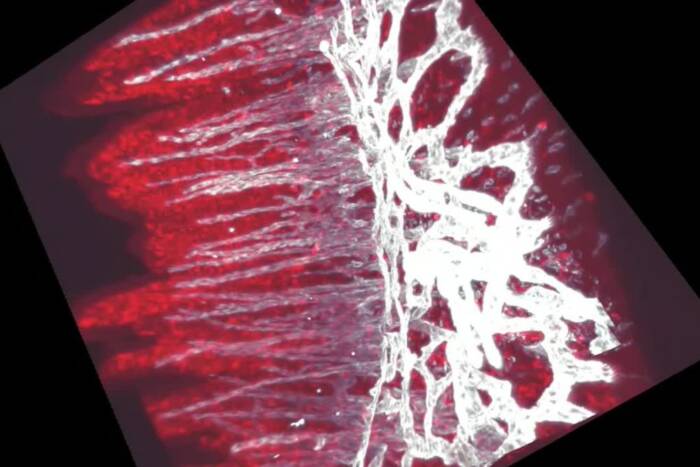Neurobiologist visits Rockefeller as part of renewed scientific exchange program with Karolinska Institute
Thomas Perlmann, a neurobiologist at the Karolinska Institute who studies the dopamine-producing cells that die during the development of Parkinson’s disease, will visit the Rockefeller University campus this week and give the Nicholson Lecture on Friday. The lecture is part of a recently renewed program that supports research exchanges between the university and the Karolinska Institute.
The initiative, called the Gunnar and Lillian Nicholson Exchange

Fund for Biomedical Scientists, provides generous support for selected postdocs and technical staff from Rockefeller to travel to Sweden for experimental work and training. Part of the program provides a special honorarium that allows one Karolinska faculty member to travel to Rockefeller, and one Rockefeller faculty member to visit the Karolinska each year. The centerpiece of the visit is a formal lecture, but the speakers are encouraged to spend several days meeting with faculty and students, and may also give informal presentations.
“The Nicholson Exchange Program is an important collaborative mechanism between our institutions,” says Rockefeller University President Marc Tessier-Lavigne. “I’d like to give special thanks to Presidents Emeriti Paul Nurse and Torsten Wiesel, who put in a great amount of effort to renew this important collaboration. Torsten in particular, as an alumnus of the Karolinska Institute, has played a major role bringing our two institutions together over the years.”
This past March, the late Nobel Prize winner Ralph Steinman was selected by the Karolinska Institute to be the first Nicholson lecturer. Steinman presented a talk entitled “Vaccines to Mobilize Dendritic Cells” at the Nobel Forum Lecture Hall.
Perlmann is the director of the Stockholm Branch of the Ludwig Institute for Cancer Research and a professor of molecular development biology at the Karolinska Institute.
Cell replacement therapy for neurodegenerative diseases like Parkinson’s is dependent on scientists’ ability to generate the right kinds of neurons from stem cells for transplantation into the diseased brain. Perlmann and his colleagues have been elucidating the transcriptional network that is involved in early specification and maintenance of midbrain dopaminergic neurons, the neurons whose death underlies the major symptoms of Parkinson’s. His lecture will describe his group’s breakthroughs in defining this network and in applying that knowledge to generate and use dopaminergic neurons for transplantation.
The Karolinska Institute, located outside Stockholm, is one of Europe’s most prestigious biomedical research universities. Its focus on basic and translational research and long tradition of making fundamental discoveries in biology make it a natural counterpart to Rockefeller. Over the years there have been many cross-continental interactions and collaborations.
The original Rockefeller exchange program with Karolinska was begun nearly three decades ago In 1982, Gunnar Nicholson, a Swedish immigrant to the U.S. who made his fortune in the paper industry, bequeathed funds to endow the annual exchange of selected scientists between the two institutes in perpetuity. Over the years, the program has taken many forms, including occasional lectures and symposia, stipends that paid for Rockefeller faculty, students and postdoctoral researchers to spend time at Karolinska, and fellowships that brought members of the Karolinska community to Rockefeller.
Since 2004, however, the program had been inactive, and funding for the exchanges accrued without being spent.
The new agreements, facilitated by Wiesel and signed in 2010 by then-Rockefeller President Paul Nurse and Karolinska President Harriet Wallberg-Henriksson, specify that the exchange will consist of three components. A lecture program will pay travel expenses for one Karolinska faculty member to speak at Rockefeller and for one Rockefeller faculty member to speak at Karolinska each year. Under the postdoctoral fellowship program, a one- to two-year fellowship will be awarded to a student from each institute every other year to study and conduct research at the other institute. Finally, the Nicholson Exchange Program will provide support for short term technical and research exchanges by scientists at many levels, including doctoral students, research assistants and resource center personnel.


